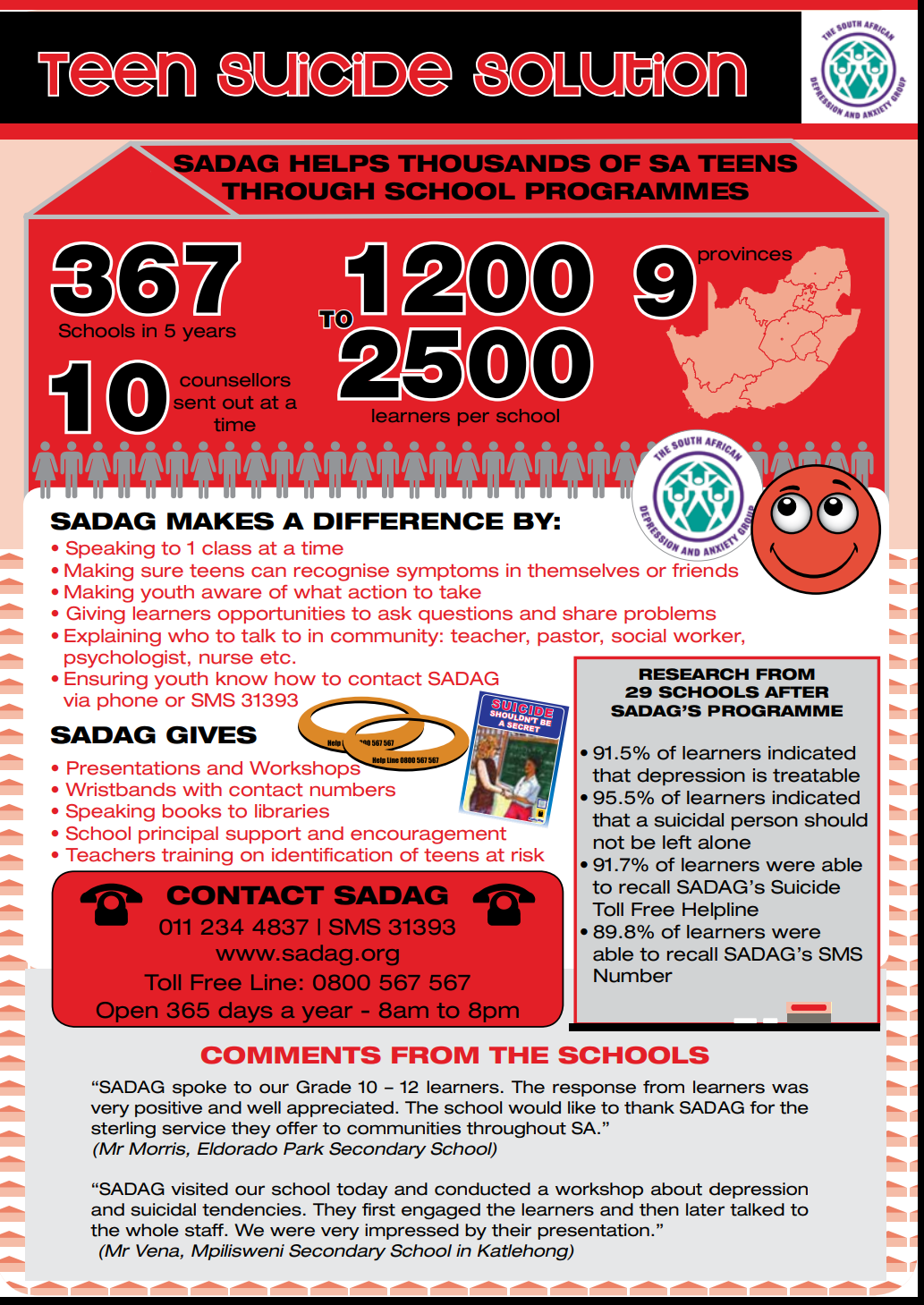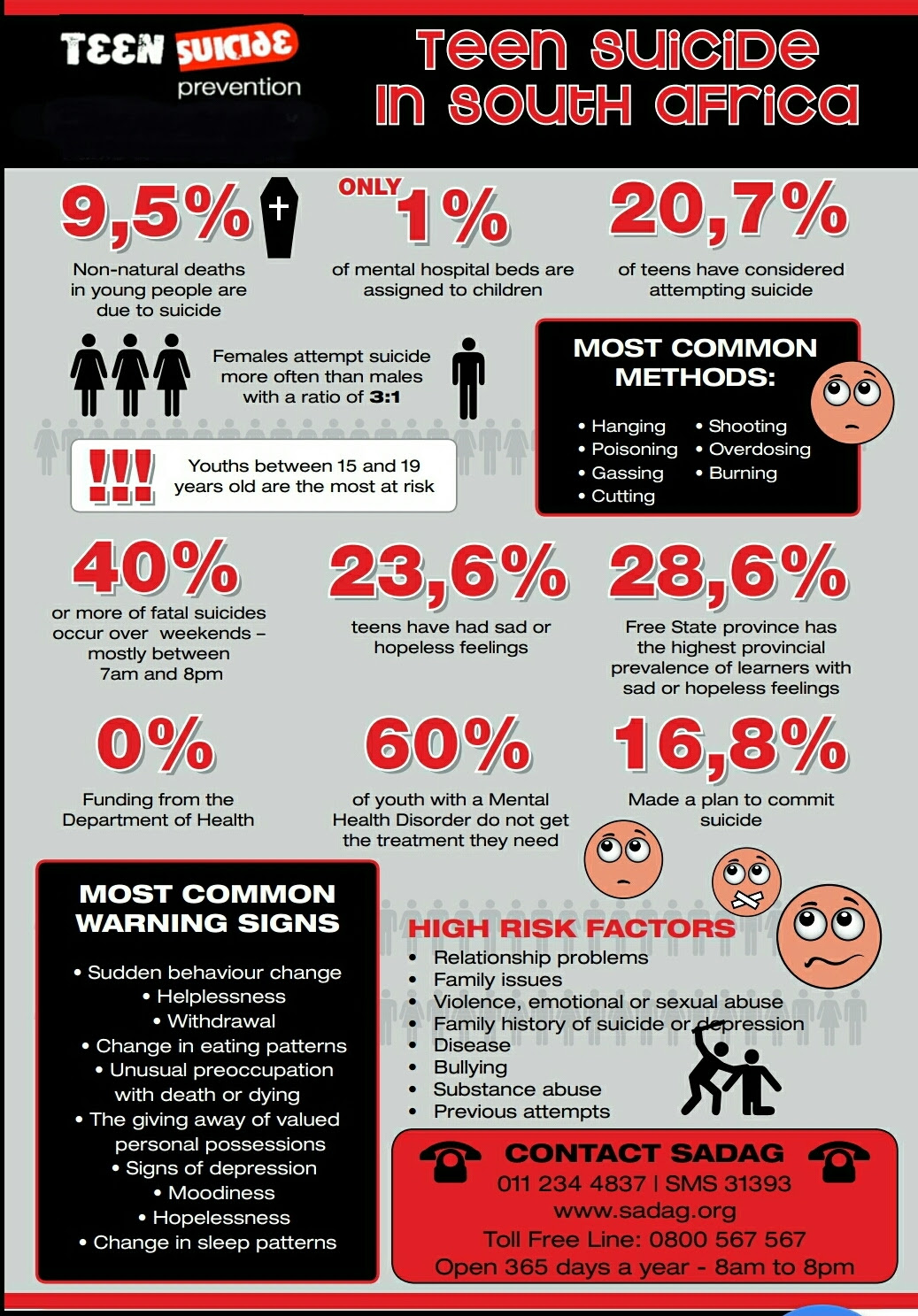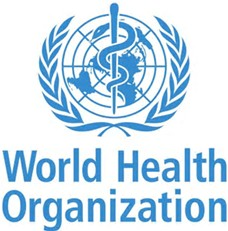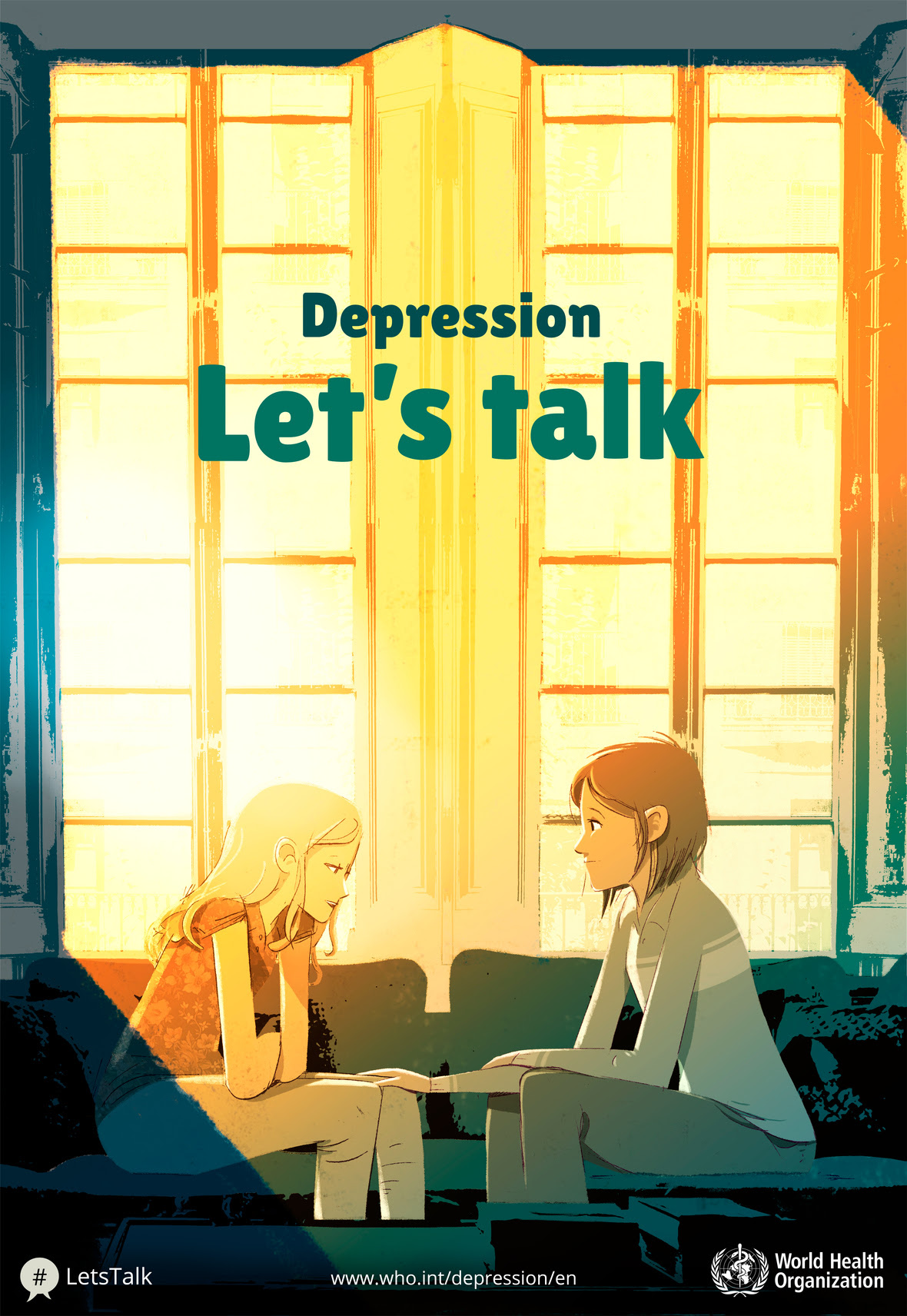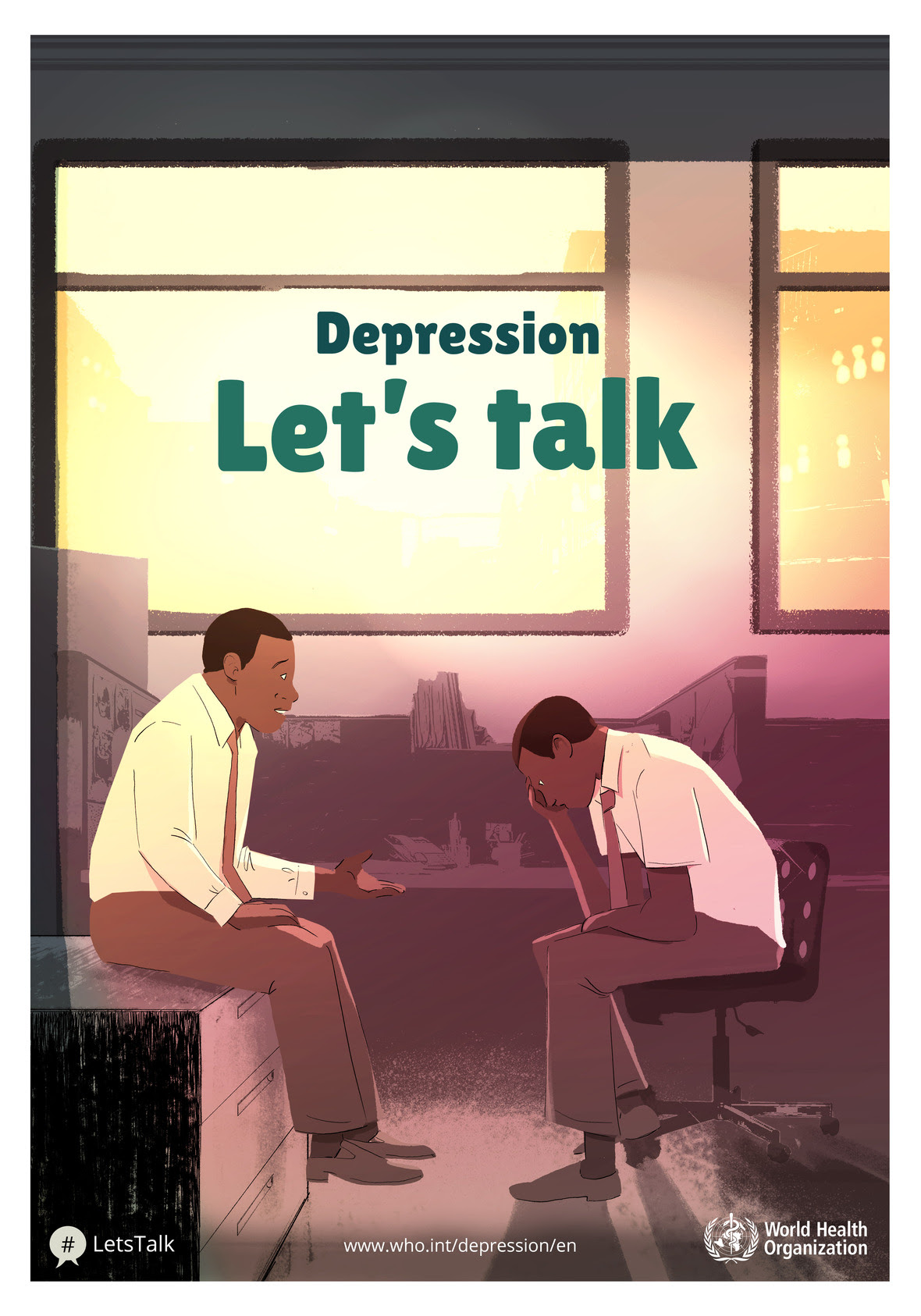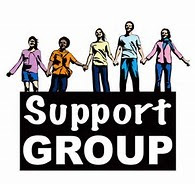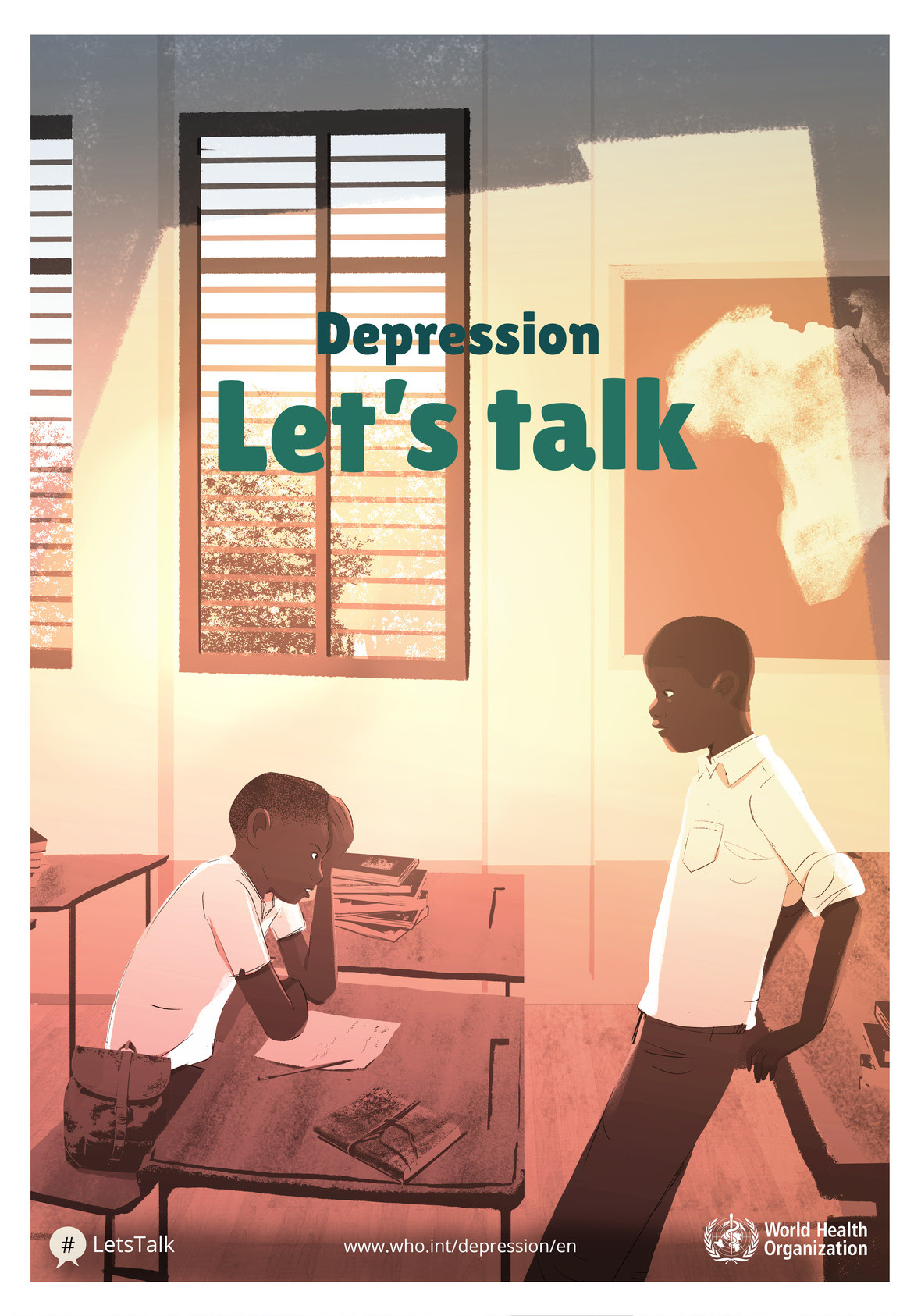The beginning of the year is an especially hard time for many teens. With exam results, their future into adulthood looming and the myriad of stress that comes with being a teenager. SADAG understands this and in the teen suicide prevention week, they along with partners are offering many workshops and tools to help those that need.


Teen Suicide Week Tool Kit
To download the material please click this link to go to the NCDs Knowledgebase to find all the files.

ARTICLES
VIDEOS
 The sad and disturbing deaths of 26 mental health patients during relocation to another facility. Bringing the total of mentally disabled deaths in Gauteng to 36 over recent months.
The sad and disturbing deaths of 26 mental health patients during relocation to another facility. Bringing the total of mentally disabled deaths in Gauteng to 36 over recent months.
The Department of Health has launched an investigation into the deaths stating that the cause and appropriate people responsible are to be held accountable for the tragedy of some of some of our societies most venerable people.
We want to know why the money was pulled and what the department and the province is going to do to take action against this deplorable state of mental health in Gauteng.
This article was originally published by Bhekisisa, the Mail & Guardian’s Centre for Health Journalism. To read more health stories from across Africa, go to bhekisisa.org
Life Esidimeni patient deaths are a wake up call that came too late
South Africa is reeling from the news that 36 mental healthcare patients have died since March after they were relocated from Life Healthcare’s Esidimeni facility to nongovernmental organisations in Gauteng.
The question many are asking is: “How could something like this happen?”
The question we should be asking is: “Why did it take 36 deaths before anyone reacted to this tragedy?”
In October last year, the South African Federation for Mental Health issued a statement expressing concerns about Gauteng health MEC Qedani Mahlangu’s announcement that the provincial government would be terminating its contract with private hospital group Life Healthcare. As part of this, almost 2 000 patients at Life Esidimeni would be discharged or moved to various community-based NGOs. This would take place between October 2015 and March 2016. No prior preparation seemed to have taken place.
The reasons for our concern were simple: there were not enough community NGOs to absorb such a large number of patients. Mental health NGOs that did offer residential facilities were already full and their resources overstretched. Many of the residents of Life Esidimeni needed high-level, specialised care. Even if organisations did have beds available, the NGOs approached to take the patients in did not, in most instances, have the staff or resources to provide this.
The family members of the patients held a march to protest against the relocation. The federation, along with public interest law organisation Section27, the South African Depression and Anxiety Group and the South African Society of Psychiatrists, approached the Johannesburg high court for an interdict to stop the relocations until better provisions had been made.
This failed and the relocations continued.
Then family members began to say that they had not been told where patients had been moved to and that patients were dying after being moved out of the Life Esidimeni facilities.

And now we find ourselves here. It has taken the deaths of 36 vulnerable people for the government and society to wake up and realise that something is wrong with the way we treat mental healthcare users.
The deaths are a disgrace and raise questions about whether the value of human life is being placed at the centre of decisions about where to cut costs.
Mental health has not been a priority in the general health agenda or budgets. The 2015 Rural Mental Health Campaign report notes that there has never been any systematic tracking of mental health expenditure. Only three of the nine provinces were able to report mental health care budgeting in a 2007 World Health Organisation report, which may offer the most comprehensive data available. At the time, the Northern Cape, Mpumalanga and the North West spent an average of about 5% of health budgets on mental health care, largely on specialised psychiatric facilities.
It is not surprising that, when budgets need to be cut, mental health is often the first to be put on the chopping block, although we know that these service users are among the most vulnerable.
People living with psychosocial and intellectual disabilities are often marginalised because of the stigma and discrimination attached to these conditions. This stigma and discrimination frequently leads to human rights violations. In a 2013 federation surveyconducted among 140 mental health service users, 50% of those surveyed in Gauteng, KwaZulu-Natal and the Western Cape reported being emotionally, verbally or physically abused. A large number of those experiencing human rights violations don’t report it or don’t know how to. Others who do report abuses often find authorities unresponsive.
In response, the federation has implemented its Mental Health Watch reporting system, which allows people living with mental illness and their families to report abuses by SMS, WhatsApp, email and post.
The South African Human Rights Commission had been made aware of the Life Esidimeni victims’ plight before the deaths but remained silent while healthcare service users’ constitutional rights were being threatened.
Despite assistance offered by the federation and others to ensure the Esidimeni patients’ transitions were conducted in a dignified, patient- centred manner, the Gauteng department of health implemented the relocations with little to no consultation and with no respect for the rights of these individuals or consideration of their vulnerability.
It took the deaths of so many people to act as a wake-up call for action. It is paramount that mental healthcare users or persons with mental disability be involved in decision-making or supported decision-making about all aspects of their lives. As far as possible, service users must make their own decisions. In instances where a per- son is unable to participate in mak- ing a decision, a caregiver or support person should respond on behalf of the person.
The disability sector’s slogan “Nothing about us without us” must always be applied.
Our society needs to focus on the protection and wellbeing of the individuals who once called Life Esidimeni their home to ensure that the places they are moved to can also be called home — where they can be happy, loved, cared for and safe.
The fate of the remaining Life Esidimeni patients now lies in the hands of duty bearers legally obligated to protect their rights and prevent more deaths.
Charlene Sunkel is the advocacy and development programme manager of the South African Federation for Mental Health. Marthé Viljoen heads the federation’s awareness and information programme.

The South African Depression and Anxiety Group (SADAG) suicide helpline was on the verge of shutting down in January and the first half of February due to a lack of funds.
The suicide helpline takes in roughly 400 calls per day for people with thoughts or contemplating suicide. The running costs of phone lines alone can run to R60, 000 per month this excluding the tireless work the operators put into the service.
With the clock counting down and time seemingly not on the side of the vital service, a true act of kindness came in. Discovery Health committed R1 million to the support of the service. This was after pleading call and interview on 702 Talk Radio.
CEO of Discovery Health Jonathan Broomberg noted that the suicide helpline played a vital and important role in the healthcare system of South Africa. Showing the companies support for the work done by SADAG through this service.
The donation will see the helpline stay open for at least another year. This means that approximately 145, 600 people will be helped and received that vital support when it is needed most. One in three South Africans suffer from depression with that figure said to be on the rise. The helpline play a vital role in the mental health of all South Africans.


